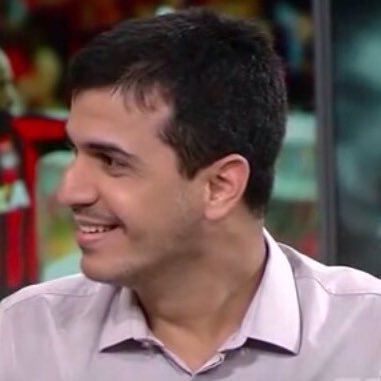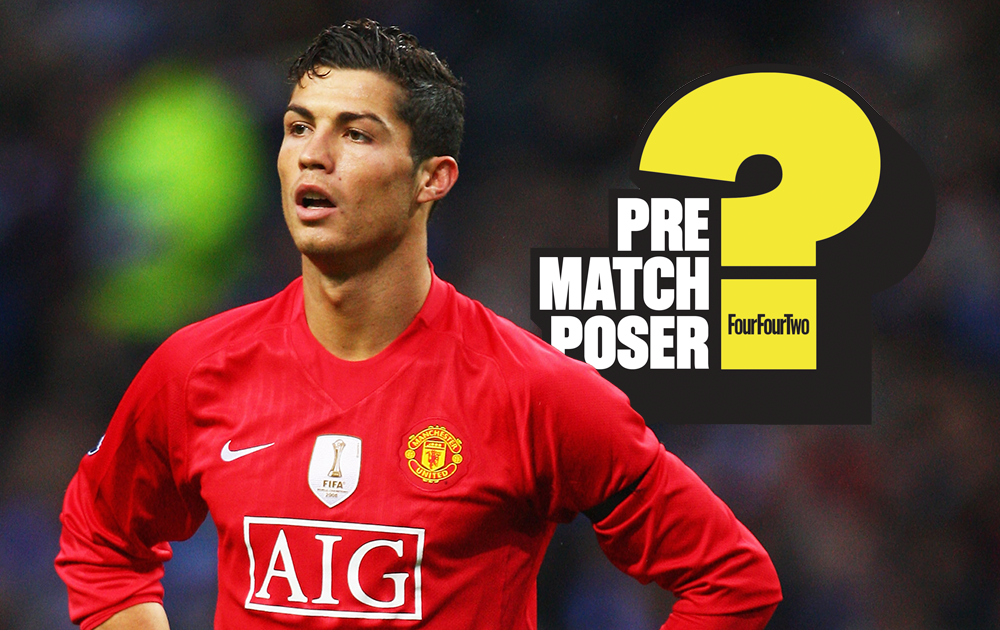Ricardo Carvalho answers YOUR questions: "Jose Mourinho doesn’t accept losses very well. We knew how difficult it was for to live with him after a defeat"
Ricardo Carvalho was Jose Mourinho's most trusted defender at Porto, Chelsea and Real Madrid, but the Portuguese pair didn't always see eye to eye. Carvalho reflects on a trophy-laden career by answering FFT readers' toughest posers...
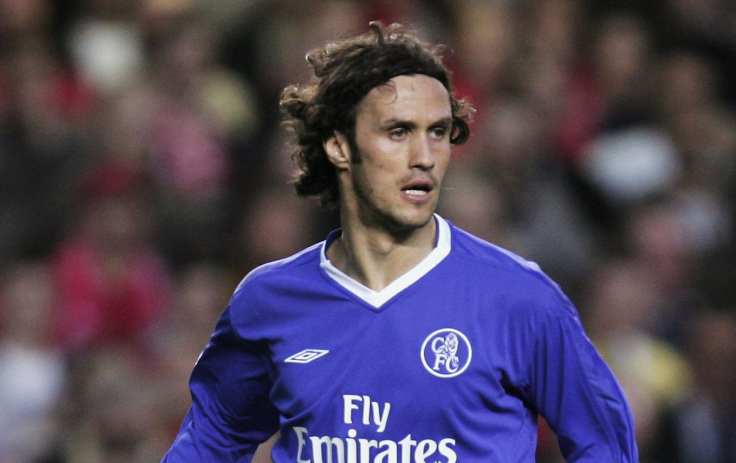
This exclusive interview with Ricardo Carvalho first appeared in the July 2021 issue of FourFourTwo. Subscribe now!
It took a while for Ricardo Carvalho to break through – much longer than many would have waited.
But working in silence has always been one of his main virtues. So, when he finally got the chance he had been waiting for at Porto aged 23, following three loan spells, he couldn’t look back. He established himself in the first team under Jose Mourinho, lifting European trophies in consecutive seasons, before triumphing in a new, record-breaking revolution at Chelsea and being called the best Portuguese centre-back ever.
On the way, he became Mourinho’s most trusted central defender – signed twice by him, latterly at Real Madrid – and one who understood his firebrand boss better than anyone, having spent nearly nine silver-tinged years together in three different countries.
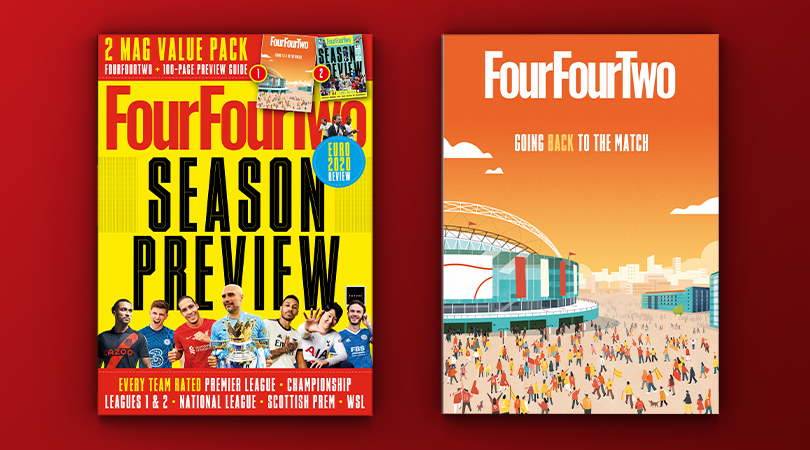
Curiously, Carvalho achieved it while maintaining a reputation among his peers as the worst trainer in the game. Not that such a tag has ever bothered him. When FourFourTwo queries him about it now, he simply chuckles. How could he not?
After hanging up his boots in 2017 at the age of 39, Carvalho loved football right to the very end – he was crowned a European champion for Portugal at 38, avenging the demons of Euro 2004 when Greece stunned the Selecao on home soil. Now he’s ready to answer your questions about it all...
As a youngster, you were loaned out three times by Porto. Did you worry that you’d never get an opportunity in the first team?
Lorenzo da Costa, Porto
At the start, it was tough. I’d spent six years at the academy of Amarante, my hometown – back then, they did good work and players often left for bigger sides, like Nuno Gomes. But moving to Porto was hard for me, because we’d played on dirt fields at Amarante – I’d never trained on a grass pitch. It was a lot to adapt to, but deep in my mind I knew my opportunity would come.
The best features, fun and footballing quizzes, straight to your inbox every week.
I was 19 when I was first loaned out to Leca, but I can’t moan – while I headed to a top-flight team, all my colleagues were sent to second-tier sides. Things went well for me there, then I returned to Porto in the same year we won the league for a fifth consecutive season [1998/99]. Porto had a very famous centre-back duo: Aloisio, who was so elegant, and Jorge Costa, our captain. For most of the campaign I stayed on the sidelines learning from the best. However, the next season I thought I had to play in order to keep growing. I spoke to president Pinto da Costa and my coach Fernando Santos, and they both agreed. I spent two years on loan [at Vitoria de Setubal and Alverca].
Was Porto’s 4-1 triumph over Lazio in the 2003 UEFA Cup semi-finals a key turning point in your career?
Freddy Powell, Colchester
That Lazio team was really strong, and they had a very famous, fast player in Claudio Lopez. So for me to have a duel against one of the best strikers of that time, and prove I could give him a hard time, felt special. We won 4-1 and were convincing that night [in the first leg], but I’m not sure if that was the turning point for me. The same campaign, we played Panathinaikos and lost the first leg 1-0 at home. Then in the second, we beat them 2-0 and I put in a great display, stopping another quick player in Emmanuel Olisadebe. I believe that was truly the beginning for me.
What was the 2003 UEFA Cup Final against Celtic like to play in? It was entertaining for the fans, but I was broken by the end...
Stuart Digby, Glasgow
[Laughs] Oh, that was a mad game! It was insanely hot in Seville. I don’t even know how we managed to survive that heat – it required a lot of sacrifice from us. But at least we stayed ahead of the scoreline for most of the match: 1-0, 1-1, 2-1, 2-2 and finally 3-2 in extra time. It really was a thriller. Back then, the UEFA Cup felt like the Champions League for us; we didn’t know when we would be in another European final, so we wanted to make the most of it.
What was Jose Mourinho like for you in the early days?
Dillon Robertson, Eastbourne
I was always under the impression that he felt I could do better. I remember after the Panathinaikos game, he came to me on the bus and said that it had been my best match. The same thing happened after the final against Celtic: “You played well and had a mature game,” he told me. It gives you a lot of confidence. He did that after we beat Manchester United 2-1 [in 2004] too, pulling me aside at training to tell me that I’d been the man of the match.
I worked with Jose for quite some time, and fortunately it happened on several occasions. [Laughs] It was a pleasure to work with him for so long, though, because he improved my game over the years. He always wants his teams to play better than the game before. He doesn’t accept losses very well, and we knew how difficult it was for him to live with a defeat – you could see that during the week. So we did everything we could to achieve good results, as it would be easier to deal with him! But that’s normal – we players also want to win every game. If we lose, our own routine is affected by it.
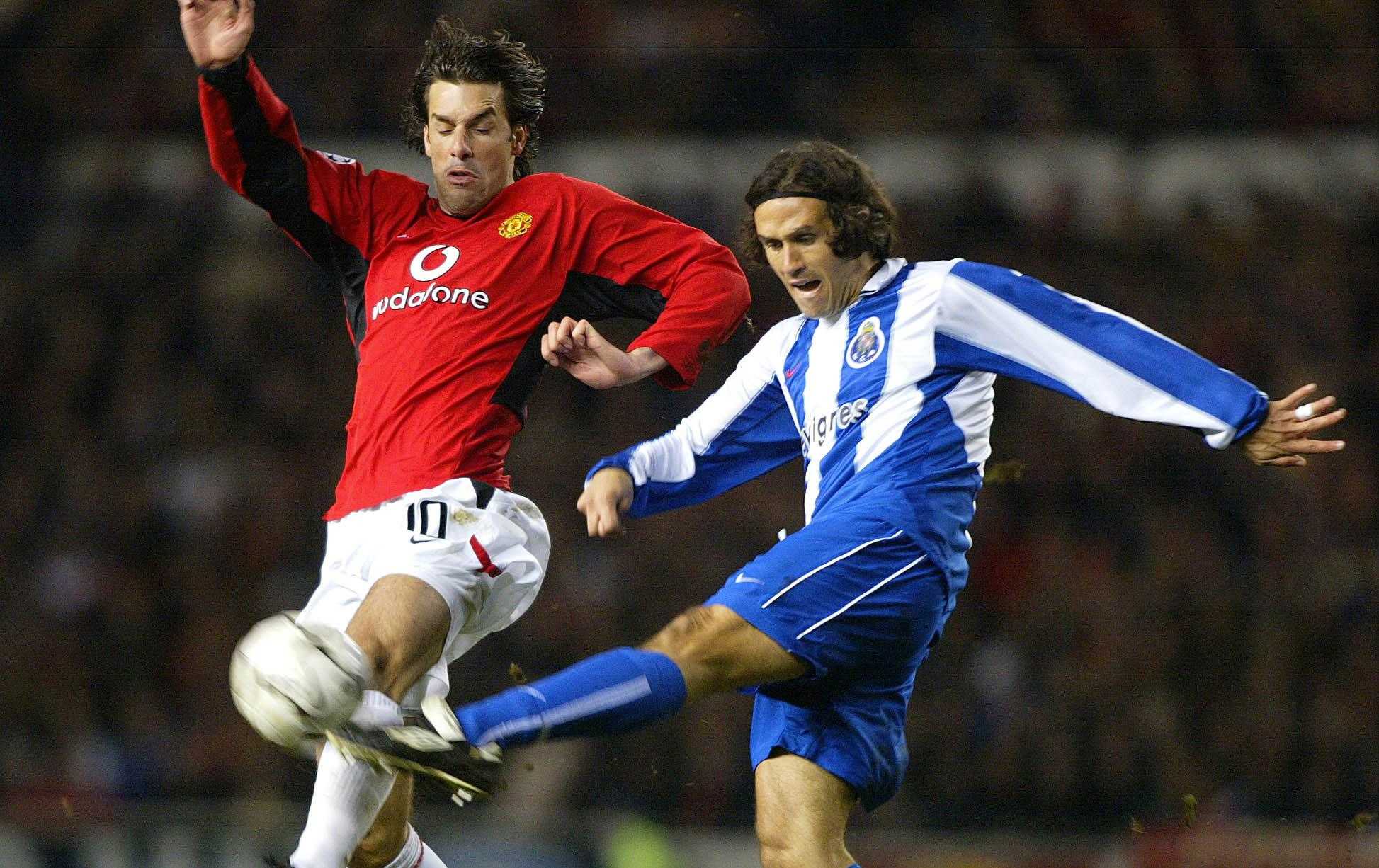
In 2003/04, is there a game you look back on and think ‘that was the one’ en route to Champions League glory? Beating Manchester United?
William Vukovic, Lancaster
Manchester United were Manchester United back then – one of the world’s best teams and favourites in anything they were involved in. To play against the best and show you weren’t inferior to them… well, that was testament to how good our team was for the planet to see. We weren’t only dominating the Portuguese league; we proved that we could beat anyone in the Champions League, too. It was an enormous result.
You weren’t one of the tallest central defenders, so how did you overcome that throughout your career?
Josh Conway, Northampton
I wasn’t one of the tallest, but I had aerial reach, read the game very well and was intelligent, so I anticipated plays. Above all else, I enjoyed being a defender and doing what I did. Most of the coaches I worked with used me as a defender regardless of how strong I was, because I had all of these skills. When I was climbing up the ranks at Porto, defenders were usually asked to clear the ball from the penalty area – send it away, avoid taking risks – but that wasn’t me. I liked to drive the ball forward. In my day, that was difficult; people at Porto said I was a defender and not required to do it. But now you see that centre-backs are asked to do what I did! Some people judged me by my height, but luckily I had the right coaches at the right times. They knew I could go far in my career.
Everybody says I was a terrible trainer, so maybe I have to accept it. So many people tell me that I didn’t train as well as I played, so I have to assume there must be some truth in it
Carvalho on being terrible in training
Benni McCarthy once called you the “worst trainer ever at Porto”, joking how Mourinho would send you home because of it... and then you’d be the man of the match at the weekend. How true was that?
Andy Murphy, Southampton
[Laughs] Everybody says this, so maybe I have to accept it. I think I’ve always dealt with this criticism well! So many people tell me that I didn’t train as well as I played, so I have to assume there must be some truth in it. But honestly, I don’t believe I trained that badly – if you don’t do it reasonably well during the week, you’ll struggle to make the starting XI. Perhaps the thing was that I used to be more focused in matches.
When did Mourinho ask you to follow him to Chelsea? Could you have gone to Real Madrid instead?
Glenn Dixon, Hendon
It took a while to finalise. I remember the first player to join Jose was Paulo Ferreira, who he’d brought from Vitoria to Porto. I’d been with Portugal at the Euros [in 2004], and after we lost the final I went on holiday – that’s when I heard about Chelsea for the first time. But before that, there were some talks with Real Madrid – president Florentino Perez travelled to Porto and met Pinto da Costa, but they couldn’t do a deal.
How did you adapt to life in England, with the new language, culture and, most importantly, the unpredictable British weather?
‘Deano’, via Instagram
Believe it or not, it was harder adapting to the Madrid lifestyle in 2010. Spanish people may be similar to Portuguese, but there was one thing I missed a lot about London – having meals earlier. In Spain, we often had lunch out and dinners at home because of our kids. The problem was that if you arrived at a restaurant in Madrid at 1.30pm, you’d have to wait until 2pm to get in! It was too late for me. [Laughs]
Sometimes I’d meet Tiago, who played for Atletico and is one of my best mates in football, for lunch at a place near their training ground. One day, the owner spoke to him in private and said, “Tiago, please can you stop Ricardo arriving so early.” By the time people were having dinner in Spain, my kids were already asleep!
[FFT: What about in the dressing room at Cobham?] That was a big difference. At Chelsea, you’d train, work, rest, take care of your life and spend time with your family. The adaptation was easier for me, because this was how I liked to be. In fact, I actually had to adapt at Porto. They’d have huge lunches with lots of people which went on for hours. I’d rather spend time with my family. Jorge Costa, Vitor Baia and everyone at Porto loved them, though. At Chelsea we didn’t quite have that, but still had a brilliant dressing room and achieved success on the pitch.
You had a couple of famous battles with England at Euro 2004 and World Cup 2006. What are your memories?
Richard Bates, Preston
The game at Euro 2004 was amazing and I still remember the atmosphere – it was incredible, and there wasn’t an empty seat. It was always fantastic to play in front of English fans, too. It was an exciting game with two great sides, and it couldn’t have ended better, with Ricardo saving Darius Vassell’s penalty without his gloves on.
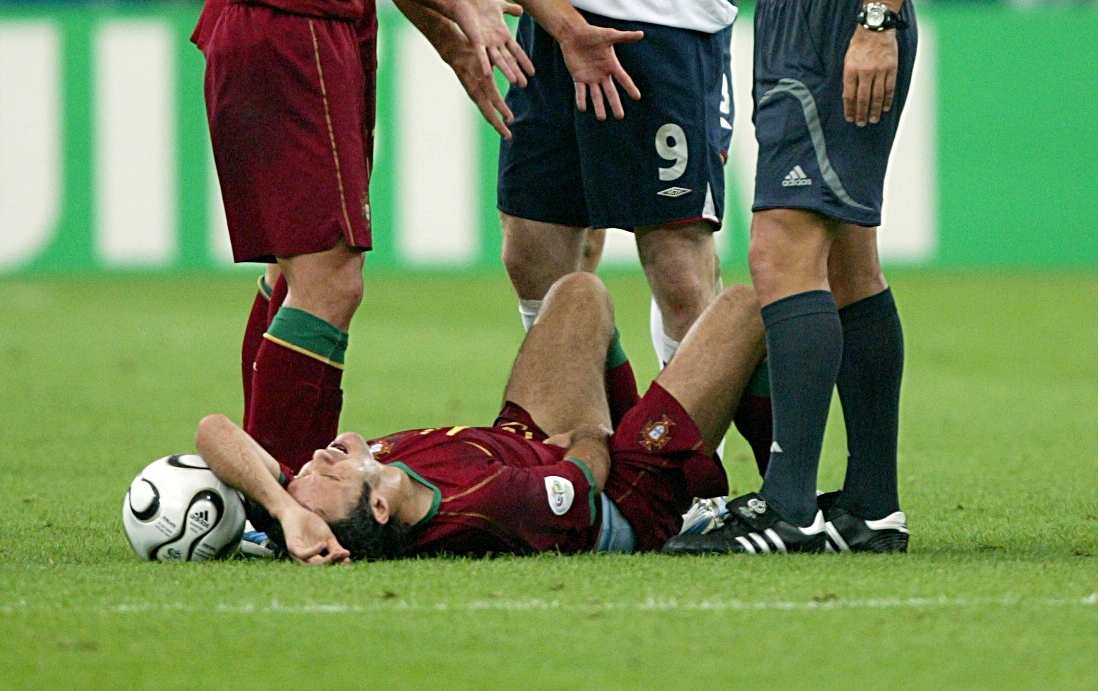
The Wayne Rooney incident in 2006 – he kicked you in quite a delicate area. Do you think he did that on purpose?
Shaun Hemmings, Stockport
Not really. I’d played against him many times before – I remember one game when he came to me on the pitch and said, out of nowhere, that he would be rooting for Chelsea in a match against Liverpool. Can you believe that? He told me his whole family supports Everton, and that he preferred us to win. So we had some relationship and respected each other. Obviously, when I walked on the pitch I’d do everything to beat him, and he did the same. But honestly, I don’t believe he meant to hurt me at the World Cup. I’d been marking him very closely and he just tried to get rid of me. It happened in the heat of the game. We have to leave what happens on the pitch and move on.
Mourinho made headlines with his ‘Special One’ speech when he arrived at Chelsea. As someone who already knew him from Porto, what did you think when you heard him say that?
Chukwuma Akachi, Lagos
If you’re asking me if I was surprised, probably not. It was a big statement to make, of course, but that was Jose. I’d been at Porto since I was 16, and that was the mentality loud and clear. I was used to hearing things like that. It was an important message for us at the time. That’s the spirit we brought to Chelsea from day one.
Chelsea only conceded 15 goals in your first season, which was insane. How did that happen?
Vlasis Magalos, via Instagram
Fortunately, I hit the ground running. We won the Premier League in our first season, at a time when Arsenal and Manchester United had dominated. It was a dream come true to win a title that the club hadn’t lifted in 50 years – it felt spectacular, as it was the start of a new era for a team that has since earned the respect of everybody. We weren’t paying much attention to the statistics, though. We were just a team that defended very well – without the ball, everyone tracked back and made sacrifices. It made our job in defence easier, so it was actually a team effort.
What was it like to have John Terry as a partner, and why did you work so well together?
Luke M, via Instagram
There are some things you simply can’t explain. Our connection was something else – if he didn’t clear a ball, he knew that I’d cover him and vice-versa. We complemented each other on the field. It’s a real privilege in football to be able to play next to a guy you fully trust, so I have to be really thankful for that. We clicked straight away – he went above and beyond to help me adapt to the English game. John was a tremendous defender, a true leader and someone whose opinion I valued a lot.
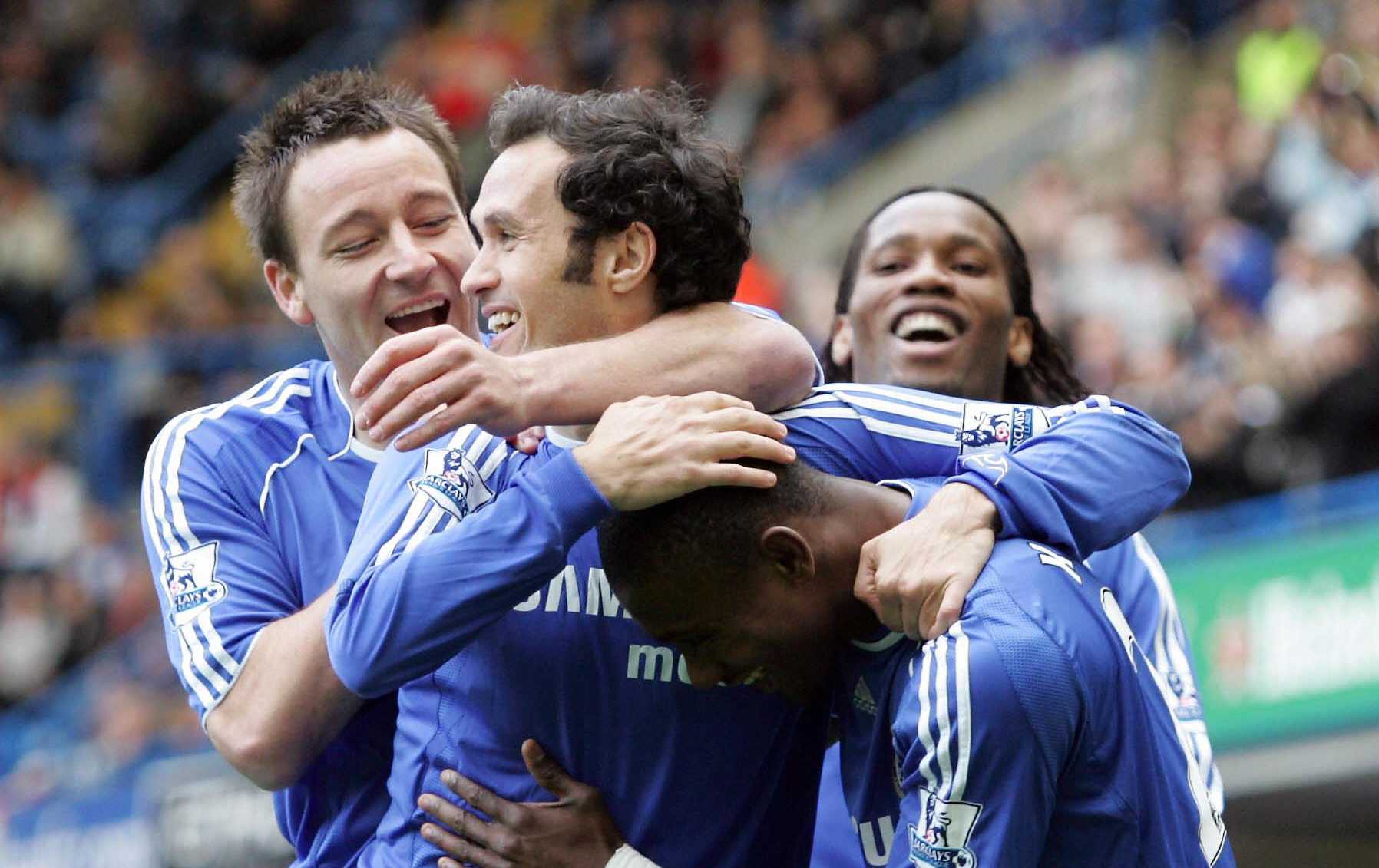
How much did you enjoy Chelsea’s Champions League battles against Barcelona? Was that last-16 victory in 2005 a huge moment, when their players lost it at the final whistle?
Sam Jones, Putney
That game was just insane. Within 20 minutes, we were already winning 3-0. If we’d kept playing like that, we would have thrashed them that night. And this was a Barcelona side that included the likes of Ronaldinho, Deco, Xavi and Carles Puyol. It was unbelievable. But you can’t expect a team like that to sit and watch you play the whole game, so we ended up conceding a penalty after a handball, and then Ronaldinho scored one of the most beautiful goals of his career. In the second half, Terry headed home a corner to make it 4-2 and we went through.
What did you think when Mourinho appeared from a laundry basket before the first leg of the Champions League quarter-final against Bayern Munich in 2005?
Max Gallagher, Colliers Wood
He was suspended and couldn’t be in the dressing room, so it was a surprise to see him there! But it wasn’t like we spent much time asking around how he’d managed to do it. We had a huge match ahead of us and, speaking for myself, I was focused on what I had to do on the pitch; who I’d have to mark. It was obviously nice to have him with us, though. Mourinho is like this – he will do everything within his power to win. If he’d sent his message through a coach, we’d have paid just as much attention because we knew it would have come from him. He felt it would have a bigger impact coming directly from himself this time.
Was Mourinho the best manager you ever had? If so, why?
Erin Hamilton, Surrey
No doubt. We spent eight and a half years together and had good and bad moments. He tries to fix things in his own way, and I’m particularly grateful to him for being so straightforward – it’s easy to accept someone like this when you win, but not when you lose. When he spoke in our first few years, no one took it personally, thinking he wanted to put you down or humiliate you in front of the other players. We all accepted and respected him for who he was. We knew that he was being genuine and only wanted to lead us to victories. Understanding this was key for the success we had.
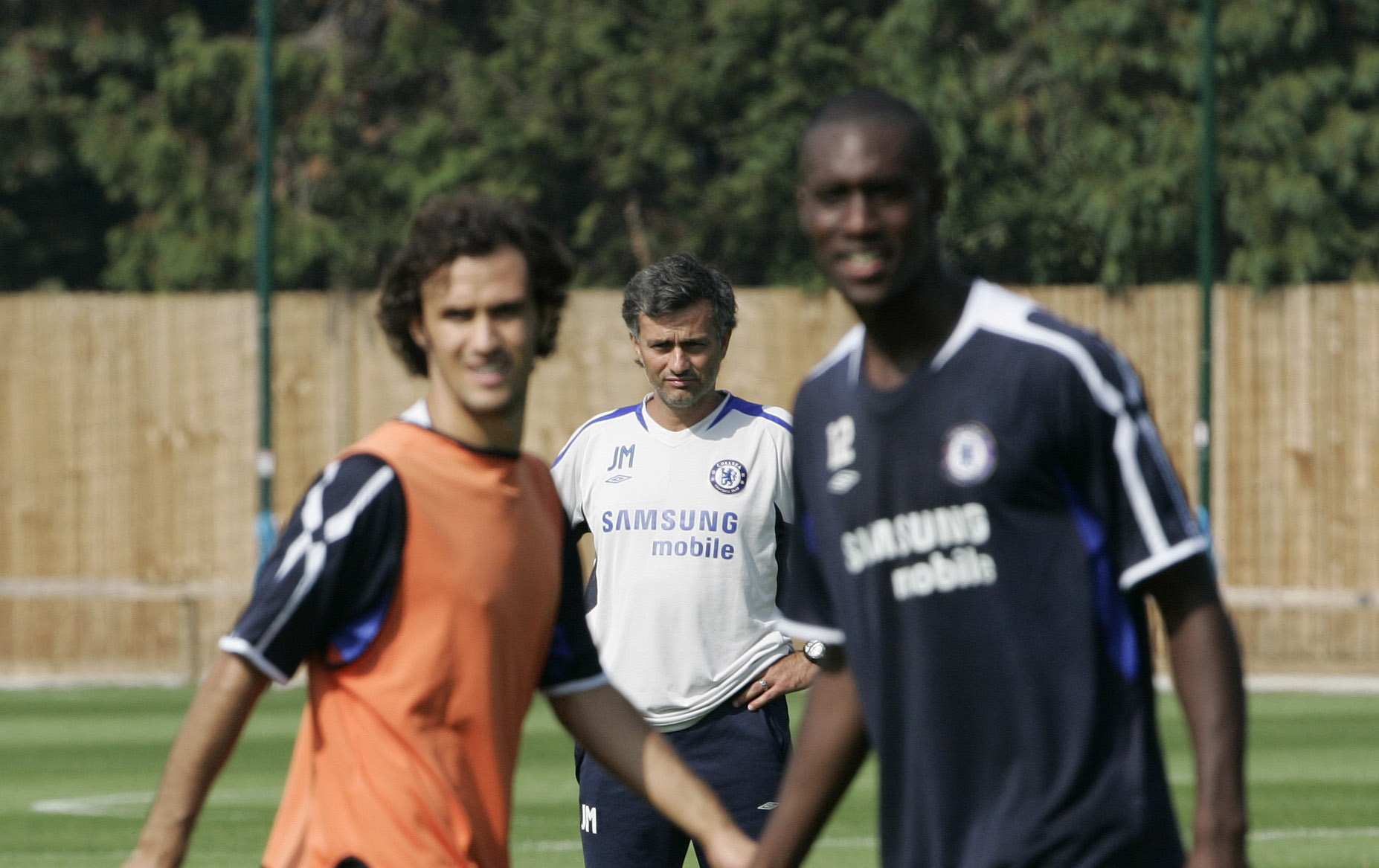
Go on, you were there: do you think that Luis Garcia goal crossed the line for Liverpool in the 2005 Champions League semi-finals?
Matt Richards, via Twitter
[Laughs] There’s no proof that the ball crossed the line. I was there and I can tell you it didn’t! I know it was a really difficult situation to check, but it was tough on us as we could have reached the Champions League final in our first season under Mourinho. Not doing so because of a goal that no one knows actually existed hurt us – it hurt a lot. That’s part of football, though.
How difficult were those penalties to watch against Manchester United in the 2008 Champions League Final? How did you feel for Terry after his slip and miss?
Rohan Patel, Tooting
It was tough. Because that’s your colleague, the guy who played by your side, who had a fantastic relationship with you. The truth is that I felt as if it were me who’d missed the penalty, to be honest. But that doesn’t compare to what he went through – it was really hard on him. I don’t think he deserved that, but football is like this. You watch it and see that the goalkeeper went to the opposite side, so if he hadn’t slipped we would have won the trophy. It was the deciding penalty. The worst situation I went through, though, was when Portugal lost the Euro 2004 Final to Greece at home. We had a brilliant team, with amazing players at the end of their careers who deserved to win it.
What sort of atmosphere did you find at Real Madrid? Was anything tough about life at the Bernabeu?
Eric Rocha, Lisbon
It was the most difficult dressing room I’ve ever been in – you see a small thing happen there, then the next day it’s splashed on the front page of all the papers as if it were a big problem. And when you don’t win trophies at giant teams like this, things get even more complicated. Real Madrid are possibly the biggest club in the world, so have this pressure to always be winning titles. When it doesn’t happen, people talk more. The egos were stronger there.
Is Pepe actually a nice person off the field? What happens to him on it?!
Edward Slater, via Instagram
I think he needs his aggressiveness to be the great player he is. Deep down, we all need this hunger he has on the field and then, whether he crosses the line or not, it’s up to everyone to judge. Off the pitch, Pepe’s a quiet guy who doesn’t talk much. On it, he transforms himself because that’s part of who he is – we’re all so focused during games that here and there we can cross the line, but that doesn’t necessarily mean that you did it on purpose.
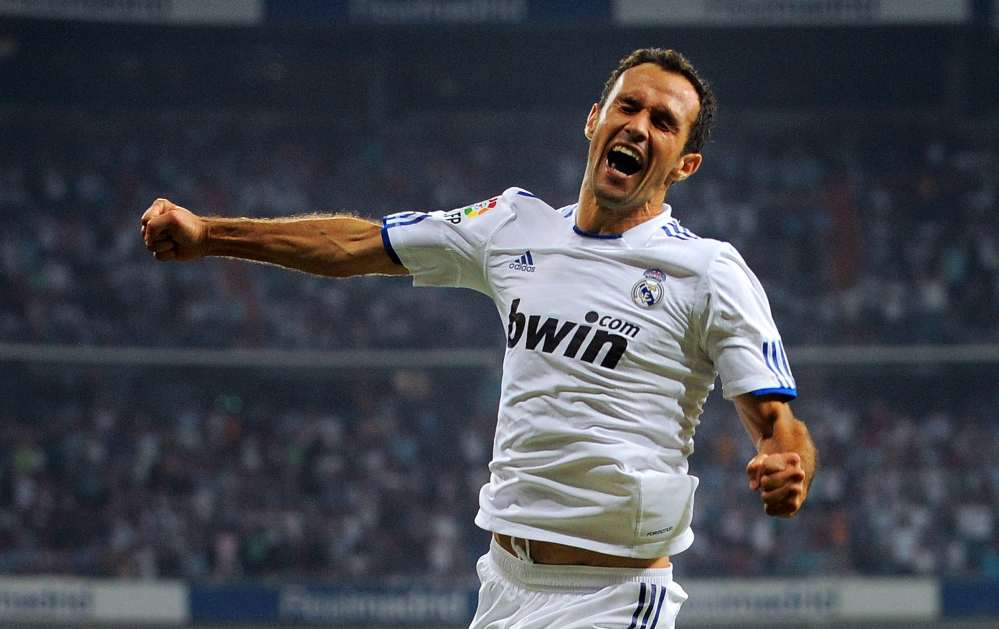
Do we really know the real Cristiano Ronaldo? What’s it been like seeing him develop over the years?
Vicky McMahon, Sunderland
I think people do now, yes. He’s grown a lot over the years and is much more mature. One thing hasn’t changed, though: his whole life revolves around being successful in anything he does. Cristiano is a perfectionist. He doesn’t demand anything from you that he can’t do himself. People may criticise him and disagree with him, but there’s no question that as a footballer, he’s Portugal’s biggest symbol worldwide – and by his own merit, he has been in that position for many years already.
You’ve been a part of many brilliant teams down the years, but who was the best player you ever played with? Not including Ronaldo...
Donny McDonald, via Instagram
Apart from Cristiano? [Laughs] That’s still difficult for me to say! I’d mention Rui Costa and Luis Figo for Portugal. At Chelsea, the best were Didier Drogba, Michael Essien, Arjen Robben, Frank Lampard and Petr Cech. Frank was one of the most consistent and complete footballers I’ve ever worked with – he always played well for us. At Porto, I’ll go for Deco.
How angry were you when Mourinho declared publicly in 2012 that your career would be over if you stayed at Real Madrid? Could you have gone to QPR as rumoured?
Rory Campbell, Uxbridge
The truth is that by the end of 2011, I’d been away from the pitch for a few months, so Jose spoke to me and said that I wasn’t a player to be left on the bench. I was contacted by some clubs, including QPR, who had signed Jose Bosingwa and were trying to convince me to join. I’ve always been a man of fixed ideas, though. At the time I didn’t feel it was right to leave Madrid, nor the moment to return to England, despite having a connection with the Premier League. I wanted my name to remain associated with Chelsea. I’d spent six years there, so didn’t want to play for any other team in England. I was 34 and approaching the end of my career, so ended up staying with Real Madrid for one more season.
How did you find your three seasons at Monaco? Some people criticised players who went there, saying that they only went for financial reasons.
Rob Poole, Dover
My contract at Real Madrid had expired and I had a few options on the table, including from the Middle East. I still thought I was capable of playing at the highest level, so I opted for the French league. If it were for financial reasons, I honestly wouldn’t have gone because I could have made much more money in the Middle East. I basically signed for Monaco because I wanted to continue playing in a competitive league.
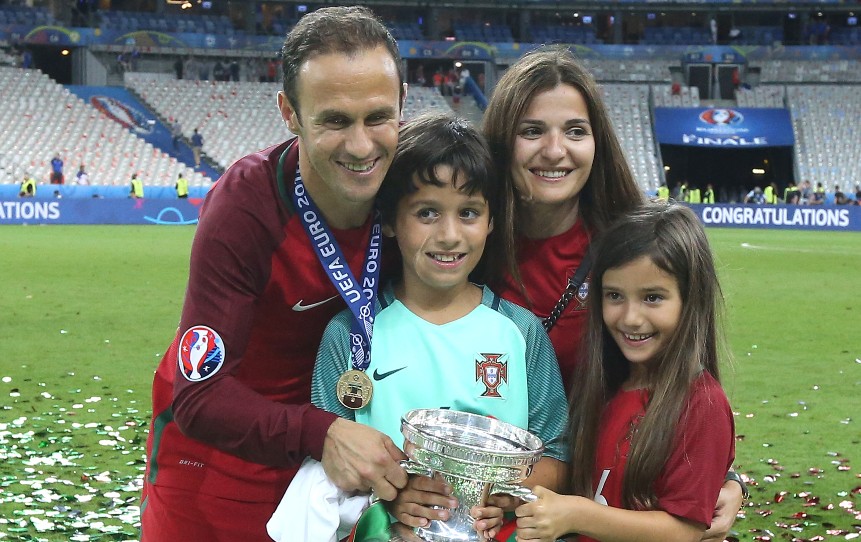
Was it obvious Kylian Mbappe was going to be a star when you played with him in his first Ligue 1 season?
Jamie Henry, Ammanford
He’s a five-star person. The best thing about football is when you meet kids like him who become idols for a bunch of people, and then you realise that he hasn’t changed a bit from that boy you knew. This is Mbappe. It was incredible to see a talent like him emerging. We had a good relationship, and recently, when I was Marseille’s assistant coach, we played PSG in the French Super Cup. He came over to our bench to give me a hug.
At Monaco, everything we spoke about had the sole purpose of helping him improve. When you’re starting out and have the traits he had, you can be more individualistic than you should, so it was important for him to improve his decision-making. He always wanted to do more, and felt that he could, but it’s crucial to find balance for the team. That was how he reached this level.
Who was the most difficult forward you played against?
@progkafa, via Twitter
If we consider that Cristiano and Lionel Messi aren’t centre-forwards, the guy I found hardest to mark was Drogba. I hadn’t heard of him when Porto took on Marseille in the Champions League [in 2003-04] and was so impressed the first time we met – he was really strong and fast. He went on to reach the UEFA Cup final that season, before we both signed for Chelsea.
At 38, you played a part in Portugal’s Euro 2016 glory. What was that like?
Brian MacGrath, Dublin
If I’d ended my career before that, I’d have felt like something was missing – that I should have done a bit more for my nation. Other international players may identify with this – it’s the best thing in the world to win a trophy for your people, a spectacular and strong sensation. But when you lose, it’s the worst feeling in the world – it doesn’t even compare to a club defeat. It takes much longer to heal. At club level, you often have another match in the same week and can quickly forget about it. When I remember 2016, I think about the huge Portuguese community that we have in France; the struggles they face, having had to emigrate in search of a better life. And yet, despite all that, they came to our training ground every day to support us. It made us feel that we could beat France in their stadium, even though they had a brilliant team. Winning the Euros in Paris was the best thing that could have happened to us.
You moved into coaching soon after that, and joined Andre Villas-Boas as his assistant at two different clubs. How have you found it so far?
Martin Owen, Doncaster
I was so happy after winning the Euros that I considered retiring from football. [Laughs] Luckily, I’m a guy who gives it some thought before making a huge decision like that! I spoke about it with Portuguese FA director Tiago Craveiro, who told me to calm down and think it through. I was almost 100 per cent convinced that I wanted to hang up my boots, but I kept receiving offers from everywhere, making the whole thing even more difficult.
Ultimately, Andre Villas-Boas invited me to work with him in China. It was a great experience for my family and we all enjoyed living in Shanghai, while I could also prepare myself to retire because I didn’t play much. There were only three slots for foreigners and they were usually taken by the likes of Hulk and Oscar. In the end, I spent most of my time helping Villas-Boas at training, especially with the defence. About the same time, my wife got pregnant, I was nearly 40 and I decided that was it for me. I spoke to [former team-mate] Tiago, who said I should take the coaching course that he was doing – perhaps we could see if we liked it or not.
The UEFA B licence would allow us to coach kids in youth football, but we went on to complete classes for the A licence as well. In the meantime, Andre joined Marseille and asked me to be part of his staff. Having been at Monaco, I was already familiar with Ligue 1 and found it an interesting challenge. We did very well in the first season, finishing second and guiding the team to the Champions League. It was a great campaign. Now I’m able to see things from another perspective, a coach’s perspective, which changes things quite a lot. It’s not an easy job!
Subscribe to FourFourTwo today and save over a third on standard price.
NOW READ
YOU ASK THE QUESTIONS Thierry Henry: "The Invincibles didn't think about going unbeaten until the third-last game"
QUIZ Can you name every British team to play in a European final?
RETRO Gianfranco Zola: How the Chelsea legend weaved his magic as English football watched in awe
Marcus Alves is a freelance journalist based in Lisbon and has written for FourFourTwo since 2012. He can also be found at BBC Sport, the Telegraph, Kicker and Yahoo. A former ESPN reporter, he covered 12 games in 15 days during the 2014 World Cup in Brazil, but can barely remember any of them. He blames cachaça for that.
 Join The Club
Join The Club





